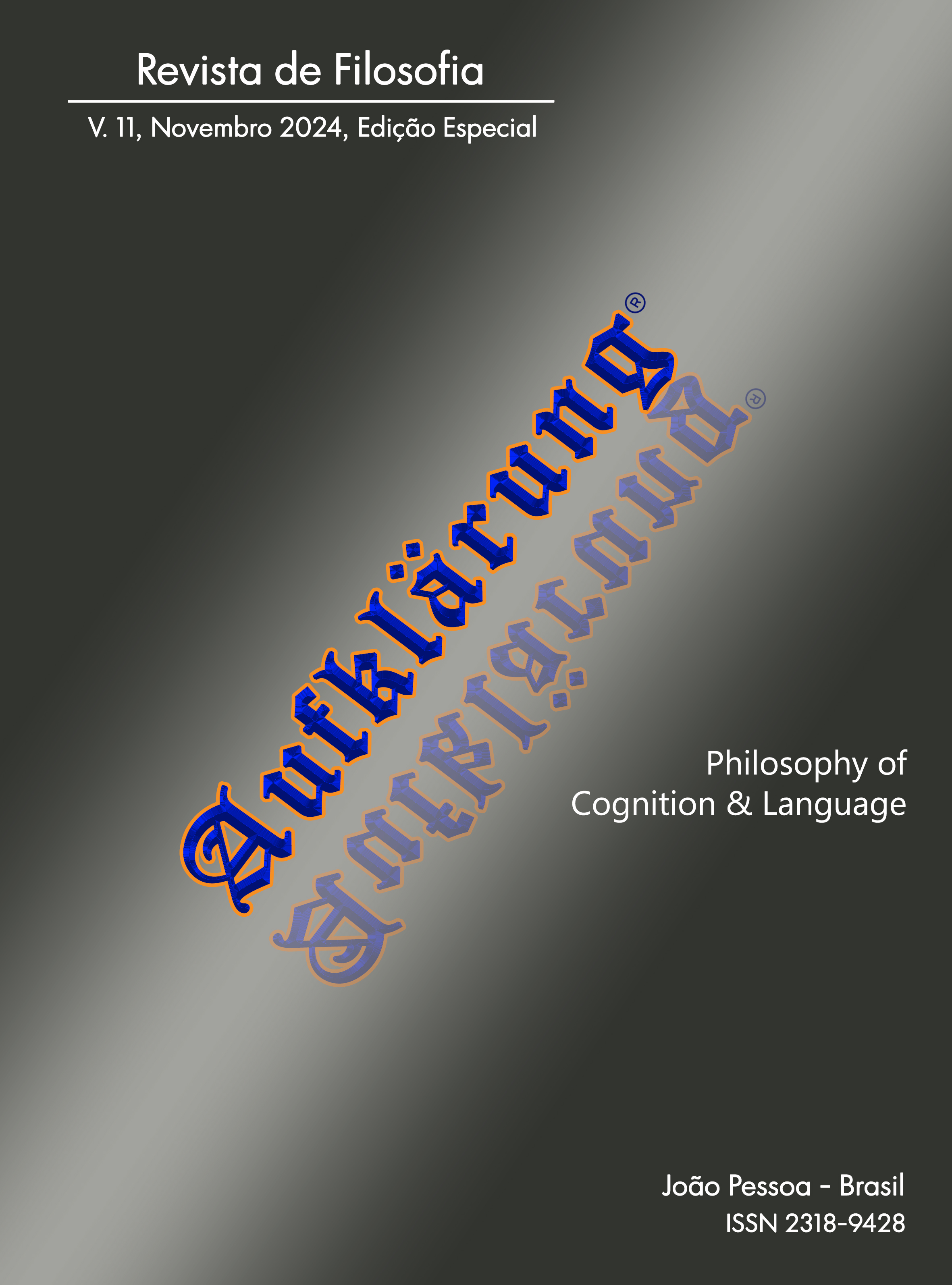Apresentação
DOI:
https://doi.org/10.18012/arf.v11iEspecial.72146Keywords:
Mente, Linguagem natural, Ciência cognitiva, Filosofia empíricaAbstract
In answer to the question in the title, I suggest that philosophy of cognition and language benefits from (i) a problem-oriented approach, (ii) a distinction between an epistemological and a metaphysical stance, (iii) the embracing of one of many ways of handling empirical information, and (iv) a distinction between a synchronic and a diachronic view of the object of study.
Downloads
References
FIGUEIREDO, N. M. As múltiplas faces de problemas situados sob o tópico Cognição & Linguagem. Aufklärung, v. 8, p. 5-10, 2021.
KANT, D.; PÉREZ-ESCOBAR, J. A.; SARIKAYA, D. Three roles of empirical information in philosophy. Kriterion, v. 35, p. 247-278, 2021.
MEURER, C. F.; KREMPEL, R. Carving cognition and language at their joints. Unisinos Journal of Philosophy, v. 22, p. 38-39, 2021.
Additional Files
Published
How to Cite
Issue
Section
License

This work is licensed under a Creative Commons Attribution 4.0 International License.
Journal general policy
1.This journal works under a Creative Commons License aplied to online journals. That icence can be read in the following link: Creative Commons Attribution 4.0 International (CC BY 4.0).
2.Accordingly to this License, a)the journal declares that authors hold the copyright of their articles without restrictions, and they can archieve them as post-print elsewhere. b)the journal allow the author(s) to retain publishing rights without restrictions.
Metadata Policy for information describing items in the repository
1. Anyone may access the metadata free of charge at anytime.
2.The metadata may be re-used in any medium without prior permission, even commercial purposes provided the OAI Identifier or a link to the original metadata record are given, under the terms of a CC BY license refered for the Journal.







































